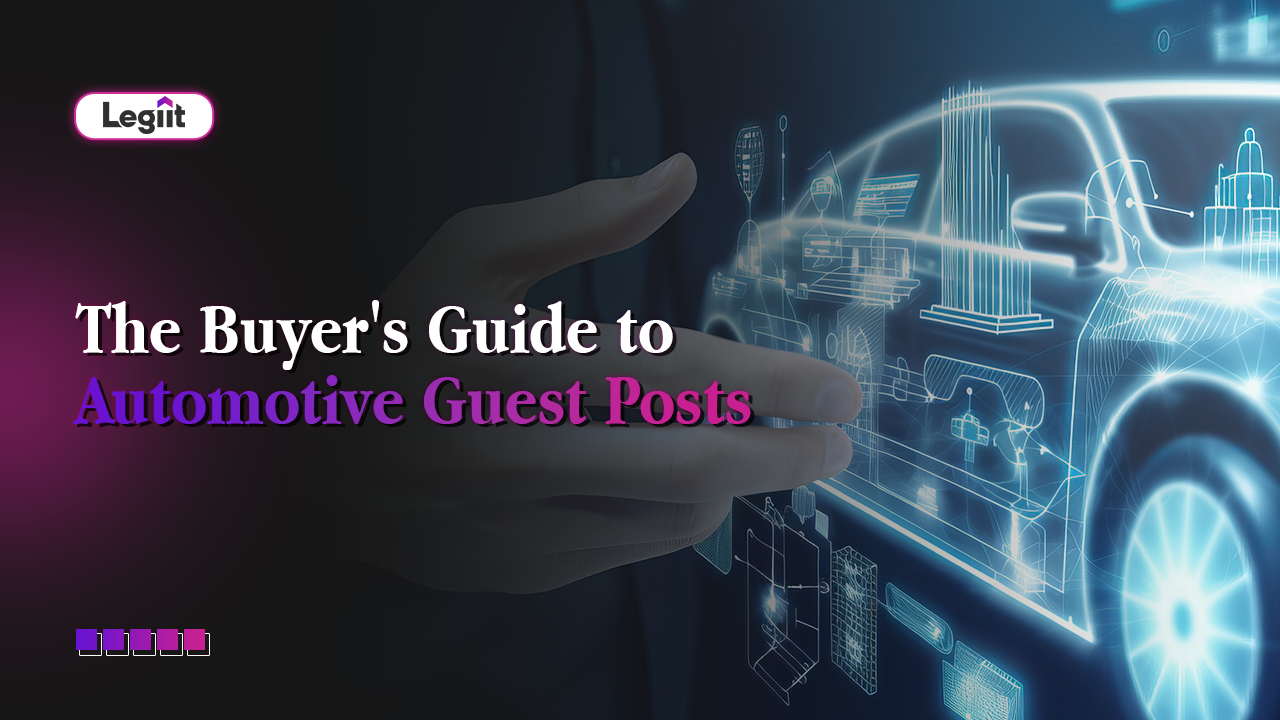Are you curious about the future of search engine optimization? If so, you're in the right place. AI is making big waves in the SEO world, and it's time to talk about it.
From AI-powered writing tools to free AI-generated optimization, the possibilities are endless.
Whether you're a professional looking for the best AI SEO tools or a small business owner looking for a cost-effective solution, you'll want to read on.
Let's dive in and explore the exciting world of AI SEO together.
What is AI and Why does it Matter for SEO?

Have you ever wondered what AI is and why it matters for SEO? If so, you're not alone.
AI, or artificial intelligence, is a technology that allows machines to mimic human intelligence and behavior. This can include tasks like understanding language, recognizing images, making decisions, and solving problems.
In the world of SEO, AI is being used in a variety of ways to help teams save time, improve efficiency, and rank higher in search results.
Overall, AI is playing a significant role in the world of SEO and it's helping teams improve their search engine rankings and drive more traffic to your websites. Whether you're using AI-powered writing tools, AI-generated optimization, or AI-powered keyword research, there are plenty of ways to take advantage of this technology to improve your SEO efforts.
AI SEO Examples
Overall, there are many examples of AI being used in the world of SEO. From AI-powered writing tools to AI-generated optimization, this technology is helping teams save time and improve their search engine rankings.
If you're interested in using AI in your SEO efforts, be sure to check out some of the tools and techniques mentioned below:
1. On-Page Optimization
On-page optimization is the process of improving the content and structure of a website to improve its search engine ranking.
AI can be used to analyze a website's content and structure, identify areas for improvement, and make suggestions for optimization. This can include optimizing title tags, meta descriptions, and keyword usage to improve a website's search engine ranking.
For example, the AI SEO tool Alli AI uses machine learning to analyze a website and make recommendations for improving its on-page elements, such as meta tags and alt text.
This can help teams ensure that their website is properly optimized for search engines and improve its chances of ranking higher in search results.
2. Content Creation
AI can be used to create high-quality, SEO-friendly content for websites. By using natural language processing (NLP) and machine learning algorithms, AI can generate content that is optimized for specific keywords and phrases.
This can save businesses a significant amount of time and money, as they won't need to hire expensive content writers or spend hours creating content themselves.
For example, GPT-3, the largest language model trained by OpenAI, can be used to generate content that is optimized for search engines. NLP tools can suggest keywords and phrases to use in a blog post or article, as well as provide suggestions for improving the overall structure and flow of the content.
3. Technical SEO
Technical SEO refers to the technical aspects of a website that can affect its search engines ranking, such as site speed, mobile-friendliness, and security.
AI can be used to analyze a website's technical SEO, identify potential issues, and make recommendations for improvement. This can help businesses improve their technical SEO and increase their search engine ranking.
4. User Experience
User experience (UX) is an important factor in SEO, as it determines how users interact with a website and whether they are likely to return. AI can be used to improve a website's UX by analyzing user behavior and providing insights.
This can help businesses understand what their users want and need, and make changes to their website accordingly. This can include optimizing the website's design and layout, as well as improving its navigation and accessibility.
5. Keyword Research
AI can help teams identify the best keywords to target in their SEO efforts.
For example, the SEO AI tool MarketMuse uses machine learning algorithms to analyze large amounts of data and suggest the best keywords to target.
This can help teams create content that is optimized for search engines and improve their chances of ranking higher in search results. For example, if a team is writing a blog post about "AI SEO," the tool might suggest keywords and phrases like "AI-powered SEO," "AI-generated optimization," and "SEO AI copywriter" to include in the post.
By analyzing large amounts of data, AI can suggest keywords and phrases that are most likely to drive traffic and improve search engine rankings.
Limitations of AI Marketing and Where It Can Improve

AI SEO has the potential to revolutionize the world of search engine optimization, but it's not without its limitations. Here are a few areas where AI SEO can improve:
1. Accurate Understanding of Search Queries
AI algorithms may not always have a deep understanding of the intent and context behind search queries, leading to potential mismatches with website content and resulting in lower search rankings.
For example, a search for "black panther shoes" may refer to a specific brand or style of shoes, but an AI algorithm may not be able to accurately determine this and may instead match the query with generic content about the color black.
2. Outdated Optimization Strategies
AI-powered SEO tools may not be able to keep up with the constantly changing algorithms and policies of search engines, potentially leading to outdated or ineffective optimization strategies.
Search engines frequently update their algorithms to improve the quality and relevance of search results, and AI-powered SEO tools may not be able to adapt to these changes as quickly as a human SEO expert.
3. Nuances and Complexities of Human Language
AI algorithms may not be able to fully understand the nuances and complexities of human language, leading to potential issues with keyword selection and content optimization.
For example, a search for "best workout routine for beginners" may imply a desire for a specific type of workout routine that is suitable for people new to exercise, but an AI algorithm may not be able to accurately identify the importance of the word "beginners" and may instead optimize for a more general keyword such as "workout routine".
This could lead to a lack of relevance and engagement with website content, resulting in lower search rankings and less organic traffic.
4. Assessing Quality and Relevance of Content
AI-powered SEO tools may not be able to accurately assess the quality and relevance of a website's content, potentially leading to suboptimal optimization strategies.
A human SEO expert may be able to evaluate the content on a website and identify areas for improvement, but an AI algorithm may not have the same level of understanding and may instead rely on generic metrics such as keyword density.
5. Lack of Human Touch
AI-powered SEO tools may lack the creativity and flexibility of a human SEO expert, potentially leading to suboptimal optimization strategies.
A human SEO expert may be able to come up with unique and engaging content ideas, as well as adapt to changes in search algorithms and user behavior, but an AI algorithm may not have the same level of creativity and may instead rely on generic optimization strategies.
While AI algorithms can handle many of the tedious and time-consuming aspects of SEO, they lack the creativity that the human touch can provide. This can limit their effectiveness in some cases.
6. Accuracy of AI
The results of AI-powered SEO tools may not always be perfect and may be outdated, leading to potential mismatches with website content and lower search rankings.
AI algorithms are not always perfect, and they can sometimes produce results that are inaccurate or misleading. This can be frustrating for users who are relying on AI SEO to help them improve their search engine rankings.
7. Cost of Implementation and Maintenance
The cost of implementing and maintaining AI-powered SEO tools may be prohibitive for some website managers, limiting their access to advanced optimization capabilities.
Custom-developed AI-powered SEO tools may require significant investment in hardware and software, as well as ongoing maintenance and support, which may not be feasible for small or medium-sized businesses.
Despite these limitations, AI SEO has the potential to be a powerful tool for improving search engine rankings. In order for AI SEO to reach its full potential, it will need to address these limitations and continue to evolve and improve.
Benefits of AI SEO

By automating many of the tasks involved in search engine optimization, AI can help businesses save time and effort, allowing them to focus on other important aspects of their operations.
AI has the potential to greatly improve the effectiveness of search engine optimization (SEO) in a number of ways. Some potential benefits include the ability to:
1. Enhanced Data Analysis and Insight:
One of the key benefits of AI in SEO is its ability to quickly and accurately analyze large volumes of data, helping to identify patterns and trends that can inform SEO strategies.
This can include data on a website's performance in search engine results pages (SERPs), user behavior on the site, and competitor analysis.
By leveraging AI-powered tools and techniques, such as machine learning and natural language processing, SEO professionals can gain a deeper understanding of their target audience and the factors that drive search engine rankings.
2. Improved Keyword Recommendations:
Another potential benefit of AI in SEO is the ability to generate more accurate and relevant keyword recommendations.
Traditional keyword research methods often rely on a set of pre-defined keywords or phrases, which can be time-consuming and limited in scope.
AI, on the other hand, can understand the context and meaning of content, allowing it to generate keyword suggestions that are more closely aligned with a user's search query.
This can help to improve the relevance and visibility of a website in SERPs, potentially leading to higher organic traffic and better search rankings.
3. Monitoring and tracking website performance
One potential benefit of using AI in the field of SEO is its ability to monitor and track a website's performance in search engine results pages (SERPs).
This can provide real-time feedback on the effectiveness of SEO efforts, allowing businesses and organizations to quickly adapt and adjust their strategies as needed.
AI-powered tools can track a wide range of metrics, such as keyword rankings, organic traffic, and click-through rates, providing a comprehensive view of a website's performance.
This information can be used to identify areas for improvement, such as by optimizing underperforming pages or targeting new keywords.
Additionally, AI can help identify any potential technical issues that may be affecting a website's search performance, such as slow loading times or broken links.
By providing this information in real time, AI can help businesses and organizations maintain a high level of visibility and engagement in the digital landscape.
4. Automating routine SEO tasks
Another potential benefit of using AI in the field of SEO is its ability to automate routine tasks, such as checking for broken links or identifying duplicate content.
This can free up time for more strategic work, such as conducting keyword research or analyzing user behavior.
AI-powered tools can scan a website and its content quickly and accurately, identifying any potential issues that may be affecting search performance.
This can help businesses and organizations maintain the quality and relevance of their content, ensuring that it is optimized for search engines and user experience.
5. Generate High-Quality Content Quickly and Efficiently
One of the biggest benefits of AI SEO is its ability to generate high-quality content quickly and efficiently.
With AI-powered tools, businesses and digital marketers can easily create a large volume of content without sacrificing quality.
This can save a significant amount of time and effort, allowing businesses to focus on other important aspects of their operations.
6. Identify Effective Keywords and Phrases
Another benefit of AI SEO is its ability to identify the most effective keywords and phrases to use in content.
By analyzing a wide range of data, AI algorithms can determine which keywords and phrases are most likely to rank highly in search engine results.
This information can be used to optimize content and make it more appealing to users.
7. Provide Valuable Insights into Audience Behavior
Finally, AI SEO can provide valuable insights into the behavior of a business's audience.
By analyzing data on website traffic and user interactions, AI algorithms can determine what type of content is most popular with users and how to best optimize content to meet their needs.
This can help businesses to create more effective content and improve their search engine rankings.
How to Implement AI in your Strategy Today

1. Identify areas where AI can be implemented in your current SEO strategy
AI can be integrated into various aspects of your SEO efforts to improve their effectiveness. This can include keyword research and optimization, website analysis and optimization, and performance monitoring and analysis.
By implementing AI in these areas, you can gain a better understanding of user search queries and intent, identify areas for improvement on your website, and track the effectiveness of your SEO tactics.
This can ultimately lead to better search engine rankings and increased organic traffic to your website.
2. Research and compare different AI tools and technologies available
Before implementing AI in your SEO strategy, it's important to research and compare the various AI tools and technologies available. This will help you identify the options that best meet your needs and budget.
Some popular AI tools for SEO include keyword research and analysis tools, website analysis and optimization tools, and performance monitoring and analysis tools. These include Alli AI and Jasper.
Most of the AI tools are built upon the GPT-3 technology by OpenAI. So instead of spending on such tools, one could directly use the vanilla GPT-3 tech called Playground.
3. Create a plan to integrate AI into your SEO strategy
Once you have identified the AI tools and technologies that are right for your needs, the next step is to create a plan for integrating them into your SEO strategy. This plan should include a timeline for implementation, clear goals and objectives, and a budget for any necessary resources or tools.
It's also important to consider how AI will fit into your existing SEO workflow, and identify any potential challenges or obstacles that may need to be addressed.
For example, you may need to provide training to your team on how to use the AI tools or develop processes and procedures for incorporating AI-generated insights and recommendations into your SEO tactics.
Once you have a solid plan in place, you can begin implementing AI into your SEO strategy and start seeing the benefits of improved accuracy and effectiveness.
4. Test and evaluate the effectiveness of the AI implementation
Once you have implemented AI into your SEO strategy, it is important to test and evaluate its effectiveness. This can be done by setting specific goals and metrics to track, such as improvements in search engine rankings, an increase in organic traffic, and increased conversions.
To properly evaluate the effectiveness of your AI-powered SEO strategy, it is important to run tests over a sufficient amount of time and with a large enough sample size. This will provide you with accurate and reliable data on the performance of your AI implementation.
5. Continuously monitor and adjust your AI-powered SEO strategy as needed
SEO is an ongoing process, and it is important to continuously monitor and adjust your strategy as needed. This is especially true when it comes to AI-powered SEO, as the technology and search landscape are constantly evolving.
To effectively monitor and adjust your AI-powered SEO strategy, it is important to regularly review the data and insights provided by your AI tools, and make adjustments to your tactics and goals as needed. This can help ensure that your AI-powered SEO strategy is always up-to-date and effective.
Additionally, it is important to stay informed about the latest developments and advancements in AI technology and incorporate them into your strategy as appropriate.
By continuously monitoring and adjusting your AI-powered SEO strategy, you can stay ahead of your competitors and maintain a strong presence in search engine results pages.
AI SEO Trends

Here are some of the trends we can start noticing in the SEO industry with respect to AI:
* Increased use of natural language processing (NLP) to improve the relevance and readability of content. AI-powered tools that use NLP can help writers create content that is more closely aligned with the language and interests of their target audience.
* Greater emphasis on user experience (UX) and user intent in SEO. As search engines continue to evolve, they will place more importance on the quality of the user experience when ranking websites. This means that content creators will need to focus on creating content that is not only keyword-rich but also provides value to the user.
* More personalized and targeted content. AI-powered tools will be able to analyze user data and create highly personalized content that is tailored to individual users. This will allow content creators to deliver more relevant and engaging content to their audience.
* Increased use of AI-powered content generation tools. As AI technology continues to improve, we can expect to see more advanced content generation tools that are able to produce high-quality content quickly and efficiently. This will enable content creators to produce more content in less time, and potentially free up more time for other tasks.
Overall, the use of AI in SEO is likely to become increasingly prevalent in the coming years, with the goal of providing more relevant and personalized search results for users.
AI SEO Frequently Asked Questions
Is AI used in SEO?
Yes, AI technology is being used in the field of search engine optimization (SEO).
AI-powered tools are being used to improve the relevance and readability of content, personalize and target content to individual users, and increase the efficiency of content production.
The use of AI in SEO is expected to continue to grow in the coming years as technology continues to evolve.
Will SEO be replaced by AI?
It is unlikely that SEO will be completely replaced by AI. While AI technology is being used in the field of SEO and is expected to continue to grow in importance, it is unlikely to completely replace the role of human SEO experts.
SEO involves a combination of technical and creative skills, and it is unlikely that AI will be able to fully replicate these skills in the foreseeable future.
However, it is possible that the use of AI in SEO will continue to grow, and it may change the way that SEO is performed and the tasks that are performed by human SEO experts.
How AI can improve SEO?
AI technology can improve search engine optimization (SEO) by using natural language processing (NLP) to improve the relevance and readability of content.
AI-powered tools can also analyze user data to create personalized and targeted content and can be used to generate high-quality content quickly and efficiently.
These tools can help improve the relevance, readability, and engagement of content, and increase the efficiency of content production. This can ultimately help improve a website's ranking in search engine results.
What are the 3 types of SEO and how will they be affected by AI?
There are three main types of SEO: on-page SEO, off-page SEO, and technical SEO.
1. On-page SEO involves optimizing the content and other elements of a website in order to improve its ranking in search engine results.
AI technology can be used to improve the relevance and readability of on-page content, as well as to personalize and target content to individual users. This can help improve a website's ranking in search engine results.
2. Off-page SEO involves building links and generating online buzz in order to improve a website's ranking in search engine results.
AI technology can be used to analyze user data and identify potential link-building opportunities, as well as to monitor online conversations and identify opportunities for generating buzz.
3. Technical SEO involves optimizing a website's technical aspects, such as its speed and structure, in order to improve its ranking in search engine results.
AI technology can be used to analyze a website's technical performance and identify areas for improvement, as well as to automate certain technical SEO tasks, such as generating sitemaps and robot.txt files.
Overall, the use of AI in SEO can help improve the performance of all three types of SEO and ultimately help improve a website's ranking in search engine results.
Final Thoughts
In conclusion, AI technology is transforming the field of search engine optimization.
The use of AI-powered tools is expected to improve the relevance and readability of content, personalize and target content to individual users, and increase the efficiency of content production.
As AI technology continues to develop, it is likely to play a central role in shaping the future of SEO. It is clear that the use of AI in this field will continue to grow in the coming years, and it will be exciting to see the new developments and innovations that emerge.













 Download
Download